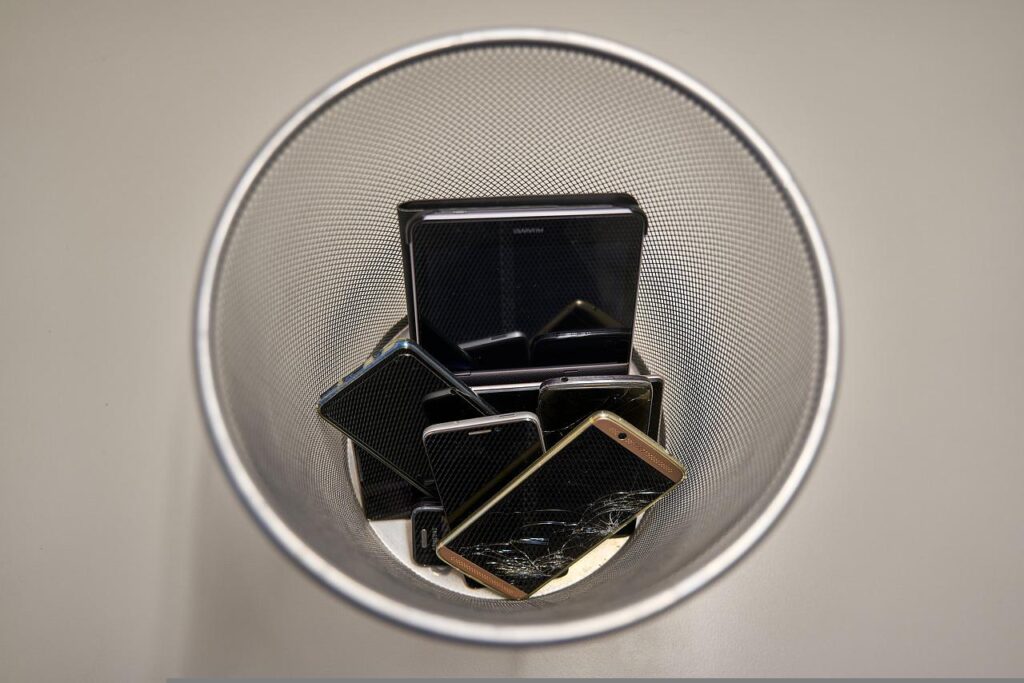Sustainability sacrificed in race towards tech
5th August 2022

The transport and logistics industry has work to do when it comes to sustainability, writes Stefan Spendrup, VP of Sales, Northern and Western Europe at SOTI. The sector became the largest emitting sector in 2016, and in 2019, it was still producing the same amount of emissions as it was in 2011 – and remains so to this day. Worldwide collaboration is happening to tackle how pollutive this industry is, but even if current and committed policies were to succeed, transport’s carbon emissions would still grow almost 20% by 2050. Highly ambitious policies could cut these emissions by 70% – but not to zero.
But there is also another trend affecting logistics, and many other industries too – and this is e-wastage, caused by the unnecessary disposal of electronics that are in perfect working order. The usual cause of this, according to SOTI’s research, is the perceived need for the latest technologies on the market. And with many logistics companies constantly turning to technology to further digitise their operations, such as 40% of companies offering a more digitised paperless delivery experience and 46% of companies have implemented automatic routing on new digital devices to help save resources and fuel, more hardware is entering the industry all the time. Optimising device’s lifetimes is another important step in tackling the current level of e-wastage being produced.
While device replacement is inevitable, nearly seven in 10 IT leaders of international corporations believe businesses are unnecessarily and prematurely disposing of digital devices. In the logistics and transport sector, tablets are the most popular digital device to streamline green supply chains, complete automated rerouting and deliver new jobs, but they are also amongst the most common devices to be disposed of unnecessarily.
The Need to Stay Ahead
SOTI’s research discovered 56% of IT leaders agree device management is an extremely important environmental issue but not enough is being done to tackle the problem. With global landfills filling up, businesses discarding devices unnecessarily will only amplify the problem. Many IT leaders acknowledge they replace their mobile phones, tablets, laptops and sometimes printers when a newer model enters the market or the device warranty expires. Further exacerbating the negative impact of e-waste, some companies believe having the latest mobile technology hardware makes their organisation more attractive for employees (62%).
Devices are not thrown away accidentally. Societal attitudes about personal technology encourage individuals to regularly replace their devices with the newest model or version on the market. For businesses, it should not be this simple. Both individuals and businesses should not dispose of mobile technologies to acquire a newer model, when the battery dies or because there is an expectation a battery will need replacing soon.
Over 34% of companies are changing devices after employees request an upgrade. This needs to stop if the amount of commercial e-waste is to be reduced. Business innovation is paramount, but not at the cost of unnecessarily disposing of and replacing devices. Businesses are sacrificing sustainability targets and wasting money.
Moving Towards A New Age
While some organisations have considerable financial resources dedicated to device replacement, very few corporate budgets are dedicated to extending the lifespan of devices. There are many cost-effective and sustainable ways to monitor and extend a device’s lifespan. The idea that replacing older devices with the most up-to-date devices attracts potential recruits or clients does not mean better business efficiency if the technology is not fully integrated with existing systems.
SOTI’s report shows 59% of companies have dedicated Enterprise Mobility Management (EMM) strategies to maximise the potential of their devices, but companies are not reaping the benefits of these solutions. EMM strategies can monitor device lifespan, downtime and battery life. More than 90% of IT leaders said their organisation’s devices have replaceable batteries. With these strategies, IT leaders can monitor a device’s battery and replace it when necessary for significantly less than the cost of replacing the hardware.
Battery recycling is becoming more advanced and widely available. Companies can continue to update devices without contributing to the global e-waste problem. With the ongoing global supply chain crisis, companies cannot obtain new technologies as easily as they previously could, so proper integration and device management is crucial. EMM strategies are even more critical in today’s market where organisations feel obligated to stay at the forefront of new technologies. They enable a company to stay up-to-date and in-line with its sustainability targets.
CLICK HERE to download a copy of SOTI’s inaugural sustainability report Reduce, Reuse, Rethink: From Discard Mentality to Tech Sustainability.

